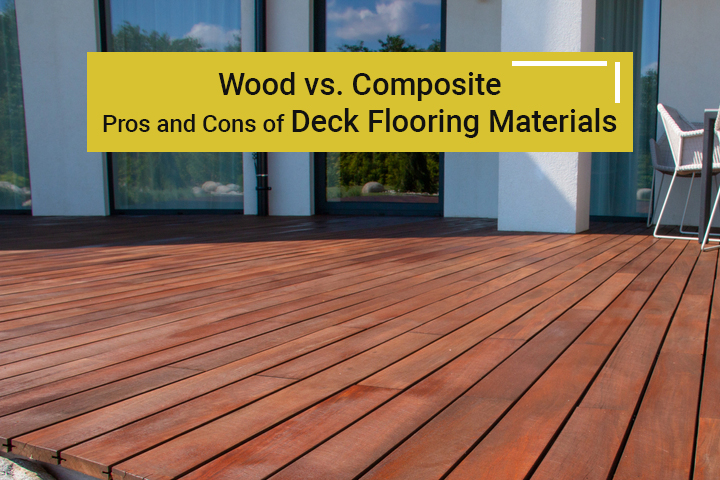When it comes to decking materials, the age-old debate of wood vs. composite continues to stir discussions among homeowners and builders alike. Each material comes with its unique set of advantages and drawbacks, making the decision a crucial one for anyone looking to create a stunning outdoor space. In this blog, we’ll explore the pros and cons of wood and composite deck flooring materials to help you make an informed decision.
Which is Better for Decking: Wood or Composite?
The choice between wood and composite decking often depends on individual preferences, budget considerations, and the desired aesthetic. Let’s break down the key factors:
Wood Decking:
Pros:
Natural Aesthetic: Wood offers a timeless and natural look that complements outdoor settings.
Affordability: Generally, wood is more budget-friendly upfront compared to composite materials.
Repairable: Damaged wood can be repaired by replacing individual boards.
Cons:
Maintenance: Wood requires regular maintenance, including staining, sealing, and potential repairs due to rot or insect damage.
Durability: While some hardwoods are durable, softer woods may be prone to scratches and dents.
Composite Decking:
Pros:
Low Maintenance: Composite decking requires minimal maintenance, eliminating the need for staining or sealing.
Durability: Resistant to rot, mold, and insect damage, composite materials offer long-lasting durability.
Variety: Composite comes in a wide range of colors and finishes, providing diverse design options.
Cons:
Cost: Composite decking is often more expensive upfront, although the lower maintenance costs can balance this over time.
Heat Retention: Some composite materials may retain more heat, making them warmer to the touch on hot days.
What is the Negative with Composite Decking?
While composite decking has gained popularity for its low maintenance and durability, one notable negative aspect is its initial cost. The upfront investment for composite materials is typically higher than that of wood. However, it’s essential to consider the long-term savings in maintenance and potential repairs, which can make composite decking more cost-effective over its lifespan.
What are the Disadvantages of Composite Flooring?
Expense: As mentioned, the initial cost of composite flooring can be a deterrent for some homeowners.
Heat Retention: The heat retention property of composite materials can be a concern in warmer climates, making them warmer underfoot.
Limited Repair Options: While composite is durable, it can be challenging to repair if damaged. In some cases, replacement of entire sections may be necessary.
What is the Best Material to Use for Decks?
Choosing the best material for your deck ultimately depends on your priorities and preferences. If you value a natural look, have budget constraints, and don’t mind regular maintenance, wood might be the right choice. On the other hand, if you prioritize low maintenance, durability, and a wide range of design options, composite decking could be the ideal solution.
In conclusion, both wood and composite decking have their merits and drawbacks. Understanding your specific needs and weighing the pros and cons will help you make an informed decision that ensures a beautiful and functional deck for years to come. Remember, a crucial factor for long-lasting enjoyment is professional installation.
Consider partnering with The Installers, whose expertise can ensure your deck is built to last, flawlessly functional, and aesthetically pleasing. Their dedication to quality craftsmanship will give you peace of mind and allow you to focus on creating lasting memories on your beautiful new deck.

